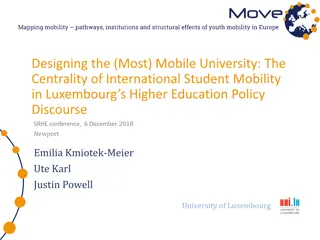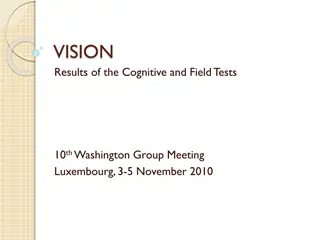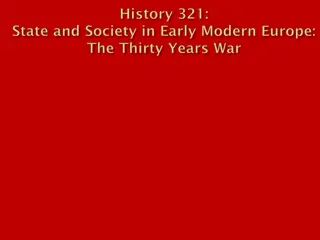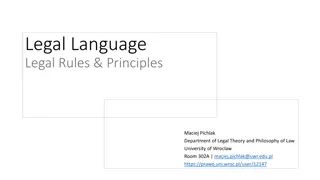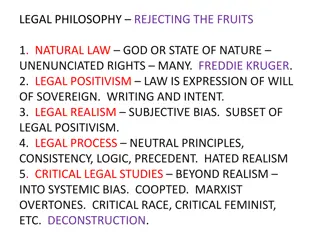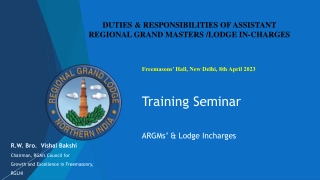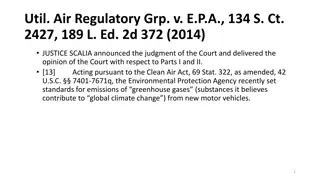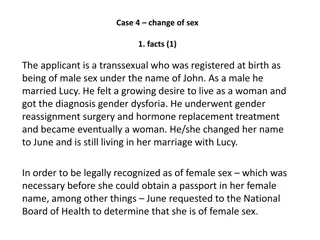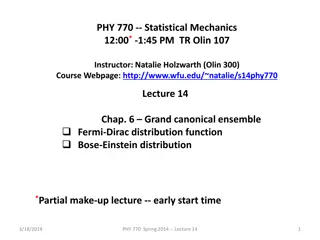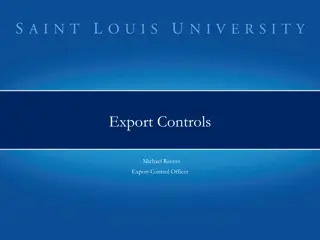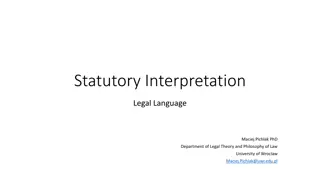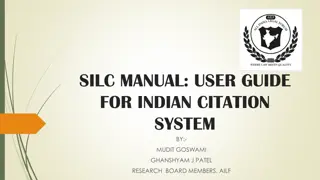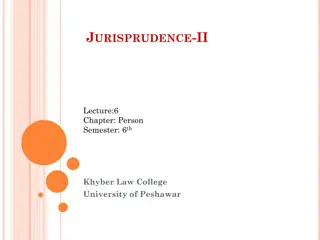Legal Context and Regulations in Case C-29/10 Heiko Koelzsch v. Grand Duchy of Luxembourg
The legal context of Case C-29/10 Heiko Koelzsch v. Grand Duchy of Luxembourg involves the Rome Convention and Brussels Convention regulations, specifically focusing on Articles 3, 5(1), 6, and 12. These articles pertain to the governing law in contracts, individual employment contracts, and the jurisdiction for legal matters. The information highlights how parties can choose the applicable law in a contract, the protection of employees under mandatory rules, and the determination of the place of performance in contractual disputes.
Download Presentation

Please find below an Image/Link to download the presentation.
The content on the website is provided AS IS for your information and personal use only. It may not be sold, licensed, or shared on other websites without obtaining consent from the author. Download presentation by click this link. If you encounter any issues during the download, it is possible that the publisher has removed the file from their server.
E N D
Presentation Transcript
Case C-29/10 Heiko Koelzsch v. tat du Grand-Duch de Luxembourg Jenny McChesney
LEGAL CONTEXT ARTICLE 3 ROME CONVENTION ARTICLE 6 ROME CONVENTION ARTICLE 5(1) BRUSSELS CONVENTION ARTICLE 8 ROME 1 REGULATION ARTICLE 12 COUNCIL REGULATION
LEGAL CONTEXT: ARTICLE 3 ROME CONVENTION A contract shall be governed by the law chosen by the parties. The choice must be expressed or demonstrated with reasonable certainty by the terms of the contract or the circumstances of the case. By their choice the parties can select the law applicable to the whole or a part only of the contract.
LEGAL CONTEXT: ARTICLE 6 ROME CONVENTION INDIVIDUAL EMPLOYMENT CONTRACTS Paragraph 1 - Notwithstanding the provisions of Article 3 (contract governed b the law chosen by the parties), in a contract of employment a choice of law made by the parties shall not have the result of depriving the employee of the protection afforded to him by the mandatory rules of the law which would be applicable under paragraph 2 in the absence of choice. Paragraph 2 - Notwithstanding the provisions of Article 4, a contract of employment shall, in the absence of choice in accordance with Article 3, be governed: (a) by the law of the country in which the employee habitually carries out his work in performance of the contract, even if he is temporarily employed in another country; or (b) if the employee does not habitually carry out his work in any one country, by the law of the country in which the place of business through which he was engaged is situated; unless it appears from the circumstances as a whole that the contract is more closely connected with another country, in which case the contract shall be governed by the law of that country.
LEGAL CONTEXT: ARTICLE 5(1) BRUSSELS CONVENTION A person domiciled in a Contracting State may, in another Contracting State, be sued: (1) in matters relating to a contract, in the courts for the place of performance of the obligation in question; in matters relating to individual contracts of employment, this place is that where the employee habitually carries out his work, or if the employee does not habitually carry out his work in any one country, the employer may also be sued in the courts for the place where the business which engaged the employee was or is now situated;
LEGAL CONTEXT: ARTICLE 8 REGULATION NO 593.2008 ROME 1 REGULATION Paragraph1 - An individual employment contract shall be governed by the law chosen by the parties in accordance with Article 3. Such a choice of law may not, however, have the result of depriving the employee of the protection afforded to him by provisions that cannot be derogated from by agreement under the law that, in the absence of choice, would have been applicable pursuant to paragraphs 2, 3 and 4 of this Article. Paragraph 2 - To the extent that the law applicable to the individual employment contract has not been chosen by the parties, the contract shall be governed by the law of the country in which or, failing that, from which the employee habitually carries out his work in performance of the contract. The country where the work is habitually carried out shall not be deemed to have changed if he is temporarily employed in another country. 3. Where the law applicable cannot be determined pursuant to paragraph 2, the contract shall be governed by the law of the country where the place of business through which the employee was engaged is situated. 4. Where it appears from the circumstances as a whole that the contract is more closely connected with a country other than that indicated in paragraphs 2 or 3, the law of that other country shall apply.
LEGAL CONTEXT: ARTICLE 12 REGULATION 44/2001 COUNCIL REGULATION (EC) An employer domiciled in a Member State may be sued: 1. in the courts of the Member State where he is domiciled; or 2. in another Member State: (a) in the courts for the place where the employee habitually carries out his work or in the courts for the last place where he did so, or (b) if the employee does not or did not habitually carry out his work in any one country, in the courts for the place where the business which engaged the employee is or was situated.
FACTUAL BACKGROUND
FACTS (1) MAIN DISPUTE Mr Koelzsch was a heavy good driver, domiciled in Germany and was engaged as an international driver by the company Gasa transporting flowers and other plants from Denmark to destinations situated in Europe, mainly bring Germany. Gasa is a subsidiary of Gasa Odense Blomster amba a company which is established under Danish law. The contract of employment between the claimant and the company was signed in Luxembourg and the contract contains a clause which refer to the Luxembourg Law and a clause conferring exclusive jurisdiction on the courts of the state. The lorries are station in Germany, which is also where Mr. Koelzsch is domiciled.
FACTS (2) MAIN DISPUTE Gasa was restricting and had a reduction in transport activities from Germany. The employees of that undertaking set up a work council in that State which Mr Koelzsch was elected as an alternative member (5/3/2001). In the form of a letter, on the 13/3/2001 the director of Gasa terminated Mr Koelzsch s contract effective from 15/5/2001.
FIRST ACTION BROUGHT
ACTION FOR ANNULMENT OF THE DISMISSAL AND THE ACTION FOR DAMAGES AGAINST GASA Mr Koelzsch challenged the dismissal in Germany before the Labour court which declined jurisdiction. He then unsuccessfully appealed against that decision to the Regional Labour Court. Mr Koelzsch then brought proceedings against Gasa before the Luxembourg Labour Court seeking an order for damages for unfair dismissal and compensation. He argued that beside the fact that Luxembourg is the place where the contract is made that German law, which protects members of works councils, were applicable to the dispute within the terms of Article 6(1) of the Rome Convention (the contract would have been governed by German law in the absence of choice by the parties).
Therefore, he contested his dismissal was unlawful under paragraph 15 of the German Law on protection against dismissal as it prohibits the dismissal of members of the works council and according the case law (in the Federal Labour Court), it extends to alternate members. Judgment of 4/5/2004 Labour Court Luxembourg held that the dispute was subject exclusively to Luxembourg law and because it was subject to Luxembourg Law it had to apply the Law of 18/5/1979 reforming works councils. The judgment was upheld by the Court of Appeal, Luxembourg. They also took the view that the application to have German Law on protection against dismissal applied to all of his claims was new and therefore inadmissible. Luxembourg Court of Cassation also dismissed the appeal against that decision on 15/6/2006.
SECOND ACTION BROUGHT
ACTION FOR DAMAGES AGAINST THE STATE FOR BREACH OF THE ROME CONVENTION BY THE JUDICIAL AUTHORITIES Mr. Koelzsch is bringing an action against the Court of Luxembourg saying that their administration was poor. Mr. Koelzsch claimed their decision that the judicial decision is justified via Luxembourg Law breaches article 6(1) and (2) *stating that the German Law was not applicable and turning down his application to have a preliminary ruling in order to clarify his habitual place of work*. Judgment 9/11/2007 Luxembourg District Court found the action to be admissible but unfounded. The Luxembourg District court observed that the courts dealing with the dispute were correct in saying that the parties to the contract had designated Luxembourg law as the applicable law, with the result that Article 6(2) would not be taken into account. Mr Koelzsch appealed again
Court of Appeal considered that the appellants criticism of regarding the interpretation of article 6(1) may not be entirely unfounded because those courts didn t determine the applicable law in the absence of choice. It points out that if they are going to settle on Luxembourg law in the absence of choice then the appellant can t compare it to German law. However, if German law is to be considered as the law applicable in the absence of choice the mandatory nature of the rules of Luxembourg law on dismissal should not prevent the application of the German law on the protection of works councils against dismissal. According to the referring court, German Law is he law applicable in the absence of choice.
OTHER ARTICLES TAKEN INTO ACCOUNT The referring court states hat they need consistency which was hindered by the interpretation of the concept of law of the country in which the employee habitually carries out his was within the terms of Article 6(2) Looked at: Article 5(1) Brussels Convention Article 12 Regulation No 44/2001 Council Regulation Article 8 Regulation No 593/2008 Rome 1 Regulation Refers not only to the country which the work is carried out but the country from which the employee carries out his activities.
PRELIMINARY QUESTION In light of these consideration the Court of Appeal in Luxembourg decide to stay the proceedings and to refer the following questions to the court for a preliminary ruling. Is the rule of conflict in Article 6(2)(a) of the Rome Convention , which states that an employment contract is governed by the law of the country in which the employee habitually carries out his work in performance of the contract, to be interpreted as meaning that, in the situation where the employee works in more than one country, but returns systematically to one of them, that country must be regarded as that in which the employee habitually carries out his work? In order to answer the question, the Court of Justice had to interpret the rules set out in Article 6(2)(a) of the Rome Convention AUTONOMOUSLY.
ARTICLE 6 Article 6 lays down special conflict rules relating to individual contracts of employment and derogate from Article 3 and 4 which concerns freedom of choice of the applicable law and determining the law in the absence of choice. Article 6(1) limits the freedom to choose. It states the parties to the contract cannot exclude the application of mandatory rules of law which would govern the contract in the absence of choice. Article 6(2) lays down specific connecting criteria (a) country of which the employee habitually carries out his work or (b) in the absence of such place, the place of business through which he was engaged. This article also provides that those two connecting criteria are not to apply where it appears from the circumstances as a whole that the contract of employment is more closely connected with another country, in which case the law of that country is to apply. The Luxembourg Court of Appeal seek to determine which of the first 2 criteria is applicable to the employment contract at issue.
GRAND CHAMBER According to the tat du Grand-Duch de Luxembourg the situation referred to in the question submitted for the preliminary ruling is that referred to by the criterion set out in Article 6(2)(b). To allow the application to such a contract of the connecting rule set out in Article 6(2)(a) would, it argues, have the effect of rendering meaningless Article 6(2)(b), which refers precisely to cases in which the employee does not habitually carry out his work in a single country.
CASE LAW HOWEVER, according to the appellant, the main proceedings follow case law on Article 5(1) Brussels Convention the consistent interpretation of the criterion on the place where the employee habitually carries out his work has the result that the rules can also apply in the case where the work is carried out in several MS in this case the claimant is an international driver and therefore carried out his work in multiple MS . In particular, they point out for the purpose of determining the place, that the court has made reference to the place from which the employee mainly carries out his obligation towards his employer in the case of Mulox IBC, or in the place in which he has established the effective centre of his working activities in the case of Rutten.
SOLUTION PROVIDED AND THE OPINION OF THE ADVOCATE GENERAL
SOLUTION PROVIDED IN THE RULING It was held that in the situation where the employee carries out his working activities in more than one contracting state that it is necessary to take care to guarantee protection to the weaker party which is what article 6 aims to do. In light of the objective of Article 6, it must be held that the criterion of the country in which the employee habitually carries out his work (art.6(2)(a) must be given a broad interpretation, whereas the criterion of the place of business through which the employee was engaged (art.6(2)(b) ought to apply where the court dealing with the case is not in a position to determine the country in which the work is habitually carried out. The referring court must give a broad interpretation to the connecting criterion laid down in article 6(2)(a) in order to established whether the appellant in the main proceedings habitually carried out his work in one of the contracting stated and if so to determine which one. It must determine which state is situated in the place which the employee carries out his work, receives instructions concerning his tasks and organises is work, and the place where his work tools are situated. It also must determine the places where the transport is principally carried out, where the good are unloaded and he place to which the employee returns are completion of his tasks which can all be interpreted as Germany.
OPINION OF THE ADVOCATE GENERAL (1) The objective of Article 6 of the Rome Convention is to guarantee adequate protection for the employee. This should guarantee the applicability of the law of the State in which he carries out his work RATHER than the State the employer established. Advocate General points out that the business and political environment affects employment activities. Therefore, compliance with the employment protection rules provided for by the law of that country must, so far as possible, be guaranteed .
OPINION OF THE ADVOCATE GENERAL (2) Article 6(2) may also apply if, the choice made by the parties to the contract leads to the exclusion of mandatory rules on the protection of employees rights which would be applicable in the absence of choice by the parties (Article 6(1)). The fundamental rule is that the law of the country in which the employee habitually carries out his work applies; alternatively, if the employee does not habitually work in one single Member State, the law of the country in which the employer s place of business is situated will apply. As the Commission rightly points out, the terms used in the Rome Convention must be interpreted autonomously this must be done in the light of the general purpose of the Convention to ensure uniform application in all Contracting States. The principle of independent interpretation has already been upheld by the Court many times in relation to the interpretation of the Brussels Convention and of Regulation No 44/2001, and in my view it applies also with regard to the Rome Convention.
COURT DECISION
GRAND CHAMBER RULES Article 6(2)(a) of the Convention on the law applicable to contractual obligations, opened for signature in Rome on 19 June 1980, must be interpreted as meaning that, in a situation in which an employee carries out his activities in more than one Contracting State, the country in which the employee habitually carries out his work in performance of the contract, within the meaning of that provision, is that in which or from which, in the light of all the factors which characterise that activity, the employee performs the greater part of his obligations towards his employer . The claimant is entitled to refer to article 6 of the Rome Convention. The national court must carry out that assessment, taking into account all the facts of the case.
CONCLUSION This case focuses on the interpretation of the article and how to determine the habitual place of work. It also looks at the contrast of articles in being a determining factor. After 8 years on the case and many courts dismissing his claims, Mr. Koelzsch finally received the verdict that article 6 was in fact admissible and therefore German law could be used as the contracting law. Freedom to provide services Case of mobile workers concerned with transport Problems with the law applicable.



